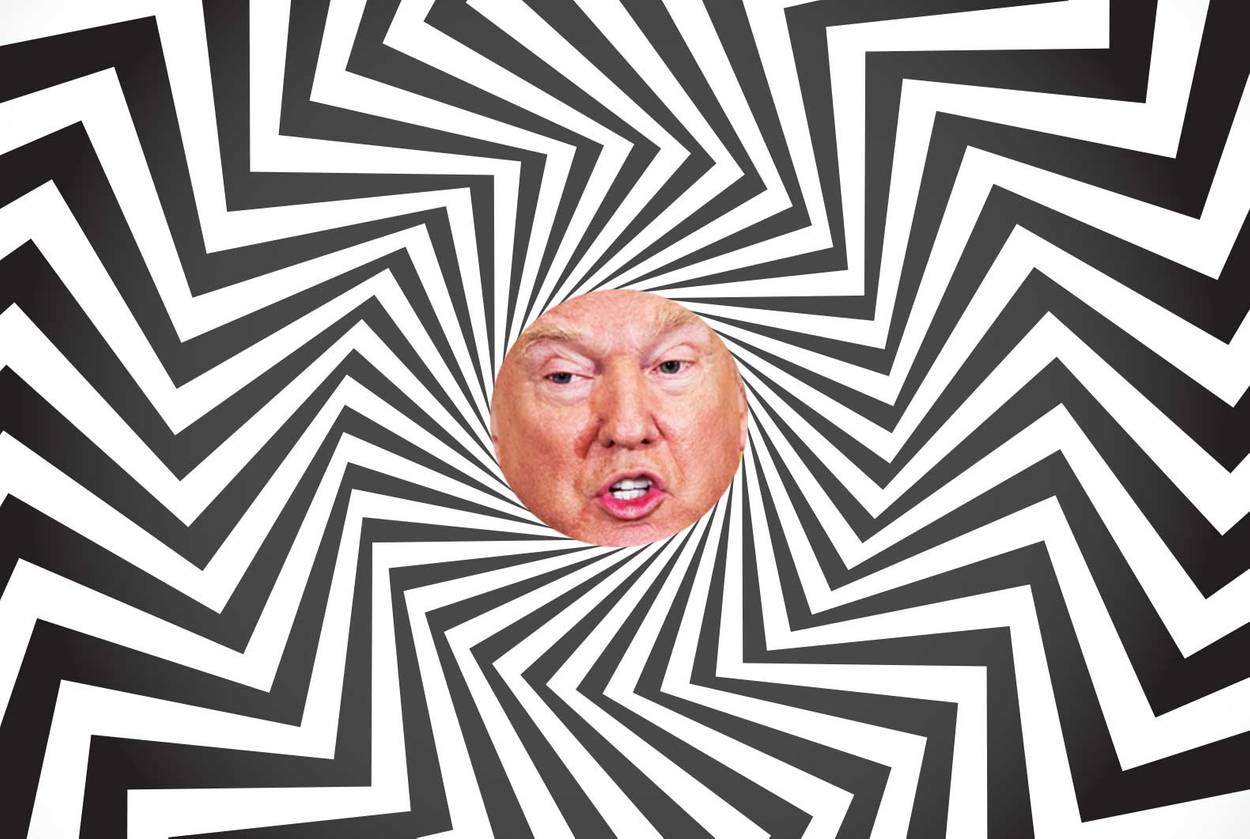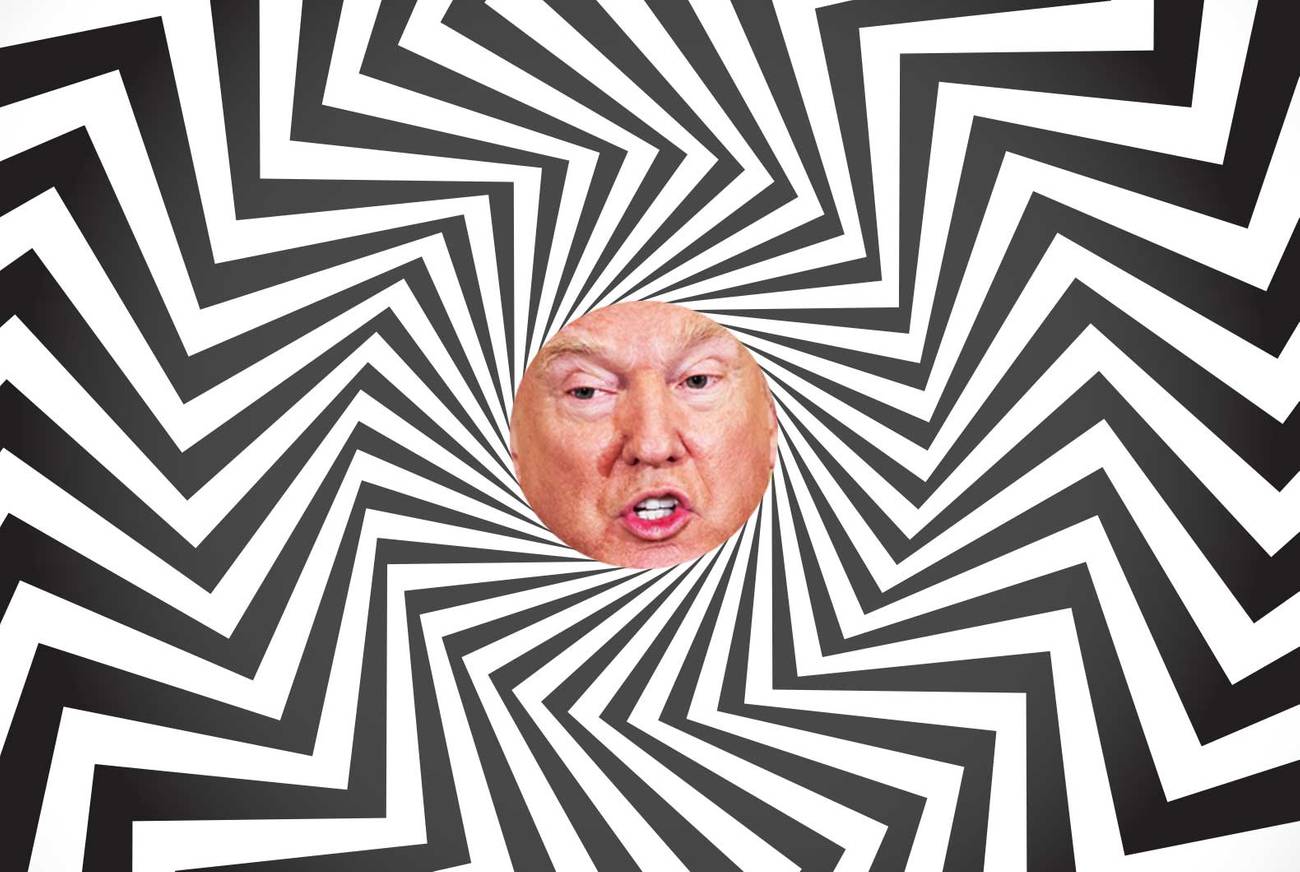Stop Donald Trump From Colonizing Your Brain
Like a Libyan dictator of old, the leader is everywhere, including inside your head




I keep trying to finish this essay, but every six three hours or so there’s a major new Trump scandal to react to.
It reminds me of a remark in the German filmmaker Wim Wenders’ 1976 movie Kings of the Road. A German character says that Americans have “colonized our subconscious.” He means the music, the movies, the blue jeans that formed hipster identity in 1970s Germany.
Trump has colonized our subconscious—in fact, he was succeeding at that even during the campaign. (Too many were ready to embrace a psychopath who had no internal censor because a decade of stultifying political correctness had led to a craving for something that felt like truth-telling, even if it wasn’t.) And now a fevered fixation on Trump, Trump, Trump is playing into his hands.
Usually, you have to be a dictator to accomplish this. What’s happening here reminds me of visiting Libya in the first heady days of its freedom from Gadhafi.
I spent about six weeks in eastern Libya in spring 2011, when a million people woke from a 42-year-long nightmare and dipped their toes into ordinary life again. The most emblematic story I heard in Benghazi was told to me by someone who, even more than today’s citizen activists, dropped everything to do what she thought was right. She was a dental professor who, on Feb. 17, 2011, walked out of the classroom where she was grading exam papers and didn’t go back for seven months. It was more important to help make a new society.
This brilliant woman, Iman Bugaighis, eventually did go back to teaching. She also spoke repeatedly of the need to root out the “little Gadhafi in our heads.” Without doing that, she said, there would be no real democracy in Libya. (Today, there’s too much democracy in Libya. But that’s another story.)
From what Iman and many other Libyans told me, Gadhafi’s regime was omnipresent. The TV, the radio, the posters in the street, and the photos in government offices: Gadhafi, Gadhafi, Gadhafi. You were never able to get him out of your head.
Another Libyan spoke of the regime’s “organized confusion,” a deliberate effort to govern by impulse so that no one could think straight and organize to resist. The regime did crazy things to make sure you paid attention. One day, the school curriculum might be totally changed, or the military academy moved hundreds of miles, or English and French books banned, or any madness you can imagine.
Once your life revolves around hating someone, you’re finished as a thinker, artist, human
Starting to sound familiar? In totalitarian societies, the need to focus obsessively on the regime helps grow a little Leader inside one’s head. Even in opposition, there’s no escape. And once your life revolves around hating someone, you’re finished as a thinker, artist, human.
Since Trump’s election, friends of mine who had no prior interest in politics, people who never even voted most of the time, have been marching, Tweeting obsessively, talking about getting involved with “the resistance.” Some are arty people who are far to the left, others are rentiers, bon vivants. Before the election, some were spending money and enjoying life. Others were involved with Mandarin art activities, pursuits that no longer seem urgent.
Meanwhile, I’ve met other people from a wide range of professions who have been doing anti-Trump research, often very good research, as citizen journalists. Twitter is full of their work, even though it’s the shrill simplifiers who get most of the attention.
It’s like what happened to many Americans after Sept. 11. Some joined the military or got a degree in Middle Eastern studies. More eccentrically, I learned Farsi and went to write about Afghanistan.
Is this drastic change in interests healthy? Yes and no. Yes to the point where it corrects an unhealthy ignorance of political matters and isolated self-absorption. But no, when you stop producing or consuming culture or art. No, when you can’t get Trump out of your head.
I force myself to stop checking Twitter and read a book instead, preferably one written a long time ago and in a foreign language. Go to a museum now and then. An opening. Moderation. Balance. Pick a piece of the work and do it, steadily and surely. I think of an almost 2,000-year-old rabbinical edict: “It is not your responsibility to finish the work of perfecting the world, but you are not free to desist from it either.”
Ann Marlowe, a visiting fellow at the Hudson Institute, is a writer and financial investigator in New York. She is the author of How to Stop Time. Her Twitter feed is at @annmarlowe.